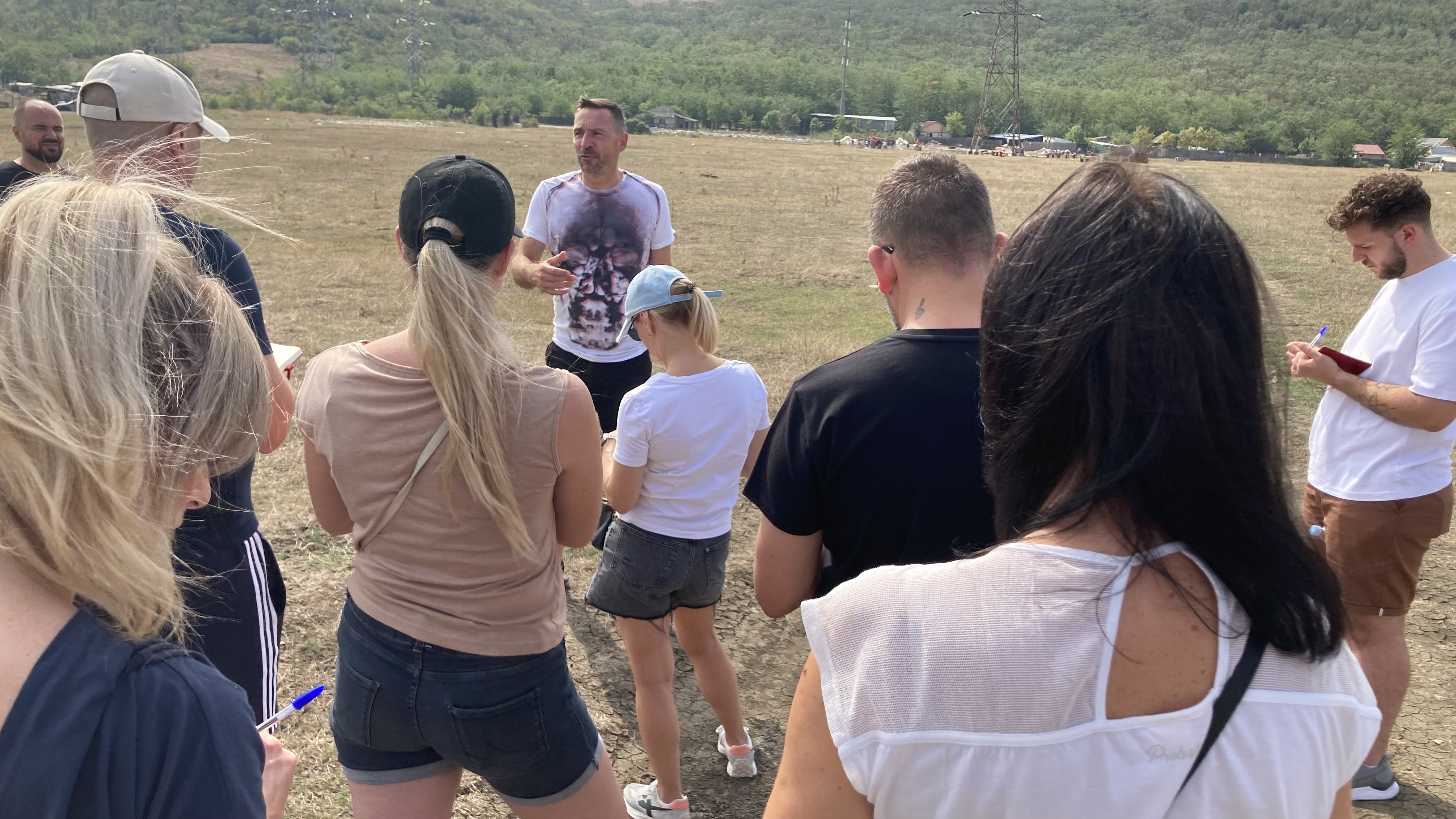Why Real Learning Begins Where Comfort Ends: Immersion as Adaptive Intelligence
It began, as many unexpected things do, with a few glasses of rosé.
That evening, over wine and conversation, my friend Arnoud—founder of Mobile School—shared an idea. He wanted to create a training company inspired by street-connected youth. The premise? The very children often seen as a ‘problem’ might actually be our most overlooked teachers.
It sounded great in theory. But I had a problem: I was a bookworm. A theory guy. I’d volunteered here and there, sure, but my understanding of street life came mostly from research papers. So, I had a choice: keep reading about it, or dive in.
Under Arnoud’s gentle but persistent guidance, I chose the latter. What followed was not only a deep personal shift—but a professional redefinition of what real learning means.
Learning on the Street: Survival as Curriculum
For street-connected youth, learning isn’t optional—it’s survival.
They’re not working through case studies or simulations. They’re negotiating conflict, making moral decisions, building trust, and navigating risk in real time. When you’re 12 and alone in an unfamiliar city, you don’t have the luxury of theory. You adapt—or you don’t.
As one street worker told me: “These kids have to learn in days what others pick up in years.”
It hit me: this is immersion in its purest form—unfiltered, high-pressure, adaptive learning. And it made me wonder: what if we could translate even a fraction of that into more structured leadership development?
Immersion Is More Than Experience—It’s Adaptive Intelligence
Arnoud had been living this immersion for years—on the streets of Guatemala, side by side with street-connected youth. He wasn’t there to solve anything. He was there to listen, to observe, and to learn without a fixed agenda.
When I joined him, I realised I wasn’t just watching. I was being pulled into a reality that demanded full engagement.
It was raw. Uncomfortable. And completely different from anything I had experienced in academia or corporate training. And that’s the point.
This type of learning isn’t new—and it’s not just found on the street.
Military training, elite martial arts, even executive education programs use immersion to build decision-making capacity and resilience. In fact, immersive simulations are becoming a cornerstone of business school curricula and leadership programs (Financial Times, 2022; 2023).
Cognitive science confirms what the street already knows: real learning involves the body, emotions, and memory—not just information. Immersive learning activates the hippocampus and basal ganglia, helping us retain procedural knowledge and build emotional intelligence (Immordino-Yang & Damasio, 2007).
The best learning isn’t just informative—it’s transformative.

Immersion Without Reflection Is Just Survival
But let’s be clear: not all exposure leads to growth. Immersion alone can backfire. Without reflection and safety, it risks becoming performative or even traumatic.
At StreetwiZe, we’ve developed a process of guided immersion—structured, emotionally safe experiences that allow leaders to engage with real-world complexity without losing their footing.
Take one of our expeditions to Romania. Participants spent time with former prisoners, families in poverty, and street youth. But they weren’t spectators—they were invited witnesses, asked to reflect, listen, and connect. And the power came not just from what they saw, but how we helped them process what they saw.
Here’s what made the difference:
Anchoring:
Before immersion, we held preparation sessions where participants explored their learning questions—usually centred around “authentic leadership under pressure.” They reflected on their default responses to uncertainty and learned to frame the experience through the lens of adaptive capacity.
Guided Reflection:
Each day ended with a facilitated debrief. We asked questions like, “What challenged your assumptions today?” or “How did your leadership instincts show up in this context?” Reflections were then linked back to leadership themes like systems thinking, vulnerability, and resilience.
Feedback Loops:
Participants were encouraged to engage directly with local community members and receive unfiltered feedback. One moment I’ll never forget: a participant received a respectful but honest correction from a local youth worker after a street dialogue. It surfaced a communication blind spot—in real time. That’s feedback that sticks.
Support Structures:
Each participant was paired with a peer buddy and accompanied by both a StreetwiZe coach and local staff from Save the Children. These reflective scaffolds helped participants process emotional ambiguity, unpack discomfort, and translate insight into action.
This approach mirrors what we do with children at Mobile School—combining expressive play with guided reflection around emotions, identity, and community. It’s not just experiential. It’s structured, supported, and self-aware.
Learning That Complicates—Not Simplifies
Done right, immersive learning doesn’t just “change perspective”—it complicates it. It invites ambiguity. It activates feedback-seeking behaviour, a key driver of adaptive learning in volatile environments (Anseel et al., 2015). It reveals blind spots, rather than offering neat solutions.
And this matters. Because in a world shaped by complexity, we don’t need faster answers—we need deeper understanding.
The Takeaway for Organisations
Immersion isn’t a buzzword. It’s a capability.
Pressure without reflection is just stress.
But pressure with the right structures for meaning-making? That’s how we grow.
So here’s the question:
When designing your next learning program, are you simulating reality—or truly immersing people in it?
Because real growth—the kind that transforms how people think, lead, and relate—begins where comfort ends.
________________________________________
Up next:
In our next article, we explore how Positive Deviance helps uncover hidden wisdom in complex systems—and what four surprising “Street Skills” can teach your organisation about leadership, innovation, and resilience.
– Bram
Founding Partner, StreetwiZe





